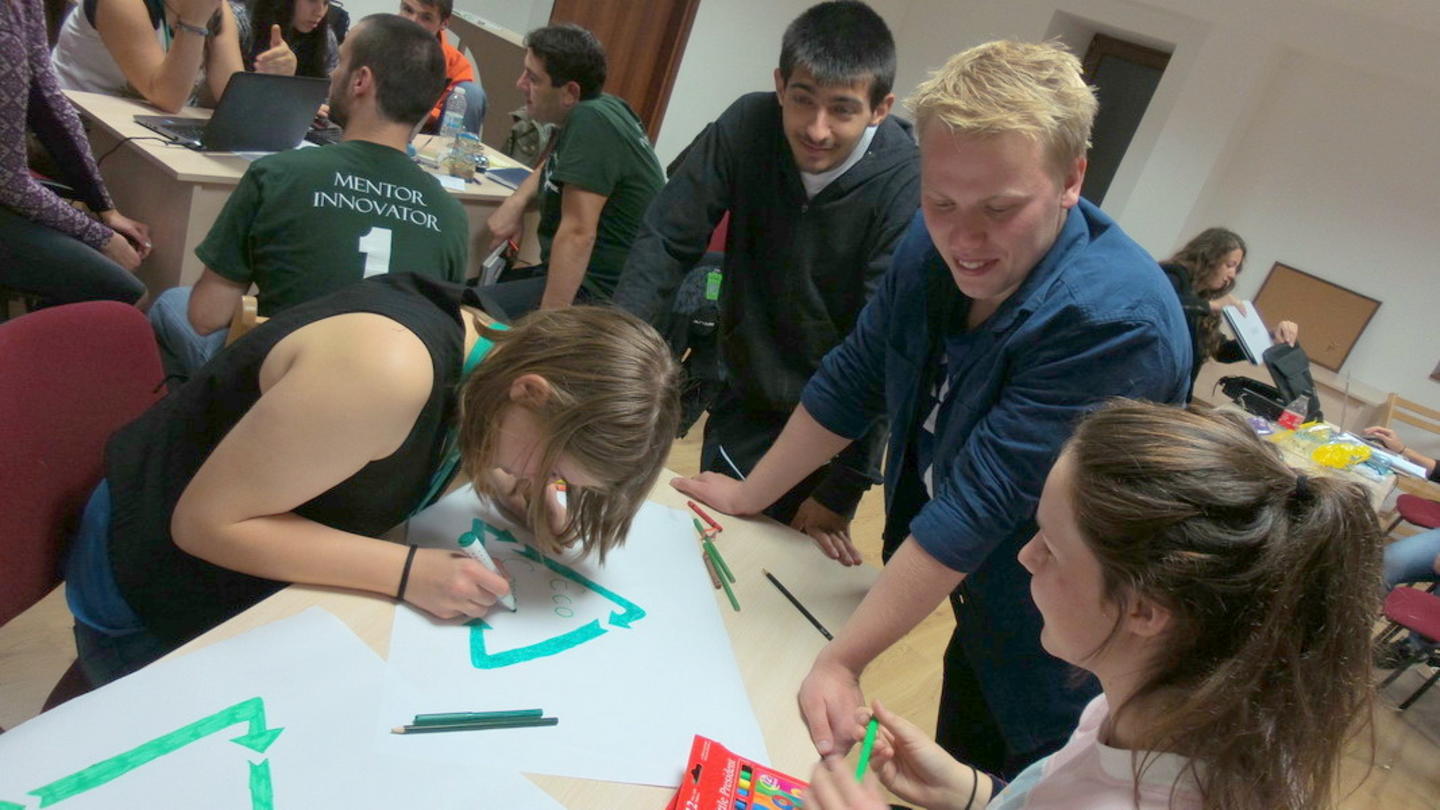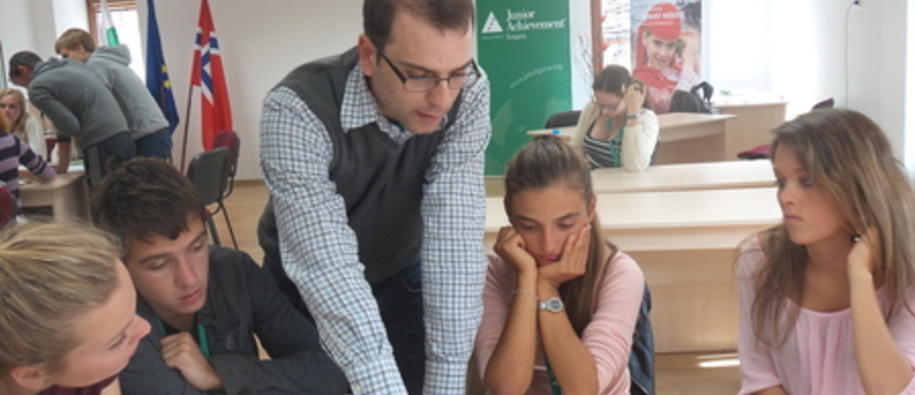“Thinking green is possible for everyone. It is not necessary to alter one’s lifestyle too much, it is enough to make simple changes. It is so easy to think that little me can’t do too much on my own, but when you are here you realise that you can do a lot simply by thinking new,” said Åsmund Hordevik from Flora secondary school in Norway.
He was one of 16 Norwegian pupils between 14 and 18 years of age that travelled to an International Eco Camp in Bulgaria where youth from the two countries met to learn about environmental challenges and how to come up with green business ideas. The Norwegian participants came from Halbrend school as well as Hafstad, Flora, Dale and Måløy secondary school, all in Sogn og Fjordane in the west of Norway.
Mira Petkova from Sofia was one of the 24 Bulgarian students that participated in the camp. “I have enjoyed all the team challenges and bringing students from different countries together is great,” she said.
Green entrepreneurship for sustainable development
The Eco Camp is an important part of a project aiming at teaching Bulgarian and Norwegian pupils how to start and manage green businesses. The training is conducted in several stages:
*Development of an online training programme on green entrepeneurship
*Eco camp in Bulgaria
*Team competition for best start-up idea
*Mentor and start-up support for the three winning teams
*Recommendations on how to teach green entrepreneurship in schools
The project is financed by Iceland, Liechtenstein and Norway though the NGO programme in Bulgaria, and carried out by Junior Achievement Bulgaria in cooperation with Ungt Entreprenørskap Sogn og Fjordane in Norway. The goal was that the project will not only benefit the Bulgarian and Norwegian youth who are involved, but also be positive for businesses in general.
Start-up support for the best ideas
In Bulgaria, the project is now referred to as an innovative model for entrepreneurship training for young people. Three business ideas developed by the young people themselves have received mentor and start-up support. The challenge was to come up with sustainable, green business ideas which would motivate regular people to make concrete environmentally-friendly changes in their daily lives.
Find out more about the best business ideas:
An online platform for adopting bees and beehives. To support efforts to limit extinction of bees, customers can adopt bees and beehives and in return get discounts on bee products.
Organic restaurant. An organic restaurant where not only the food, but also the building itself is sustainable, i.e. producing its own energy. Home delivery on bicycles.
A gym that produces electricity. A gym that motives its clients to do something useful for the environment while doing their normal workout. In this gym the fitness equipment can turn energy into electricity. Discounts for the most active participants.
Continued cooperation
The cooperation has resulted in new friendships between young entrepreneurs in Bulgaria and Norway. Even though the project is formally over, a new eco camp is planned for in Sogn og Fjordane.
“We hope that all these experiences have left lasting impressions on the students and that it will help them to become green innovators of the future,” said Vera Petkantchin from Junior Achievement Bulgaria, project manager for the project.
Find out more about the project

